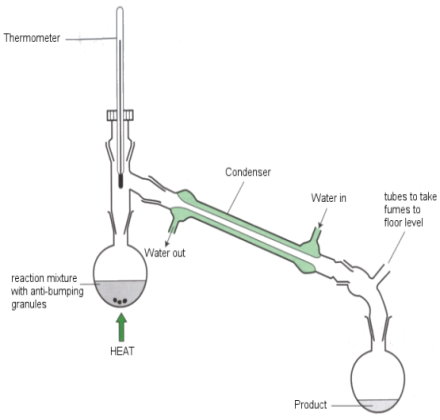List of Arab scientists and scholars
Contributing to the growth of European science was the major search by European scholars for new learning which they could only find among Muslims, especially in Islamic Spain and Sicily. These scholars translated new scientific and philosophical texts from Arabic into Latin.
One of the most productive translators in Spain was Gerard of Cremona, who translated 87 books from Arabic to Latin.

Laboratory setup for steam distillation,
invented by Avicenna in the 11th century.
Chemistry
The science of chemistry is often described as growing out of a pseudo-science called alchemy. The word for both in Arabic is al-kimya. The goal of alchemy was to transform matter, and especially to make gold out of base metals, to find elixirs (in Arabic al-iksir) that could ensure long life, and even to try and create life. Even though later scientists dismissed these goals as unreachable or forbidden, alchemists learned a great deal about the natural elements by trying to reach these goals.
Al-Andalus (Islamic Spain) was a major center for processing flowers and herbs for medicines and cosmetics, using different chemical processes. Distillation (boiling and condensing) was one process described in Arabic books of chemistry. Others are subliming, crystallizing, dissolving substances in the right concentration, and preserving them in alcohol or syrup (both words from Arabic).
Hospitals and pharmacies in Al-Andalus used these skills and recorded them in manuals and books. Perfumes, essential oils, and cosmetics were made out of natural substances that are weak in their natural form, and must be extracted and concentrated. They also need to be attractive and pleasant to apply to the body. In the cities of Al-Andalus, perfumers' shops were often located in streets near the main mosque.
Scientific Method
Muslim scientists placed a greater emphasis on experimentation than previous ancient civilizations. Muslim scientists thus combined precise observation, controlled experiment and careful records with a new approach to scientific inquiry which led to the development of the scientific method.
In particular, the empirical observations and experiments of Ibn al-Haytham (Alhacen) in his Book of Optics
(1021)
is seen as the beginning of the modern scientific method, which he first introduced to optics and psychology.
With his book he changed the meaning of the term optics and established experiments as the norm of proof in the field. His investigations are based not on abstract theories, but on experimental evidences and his experiments were systematic and repeatable.
Due to his formulation of a modern quantitative and empirical approach to physics and science,
he is considered the pioneer of the modern scientific method and the originator of the
experimental nature of physics and science. He has been described as the first scientist
.
